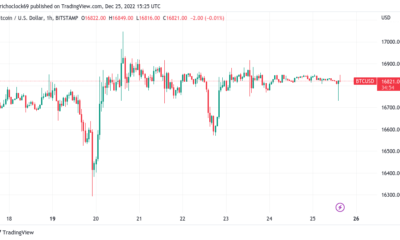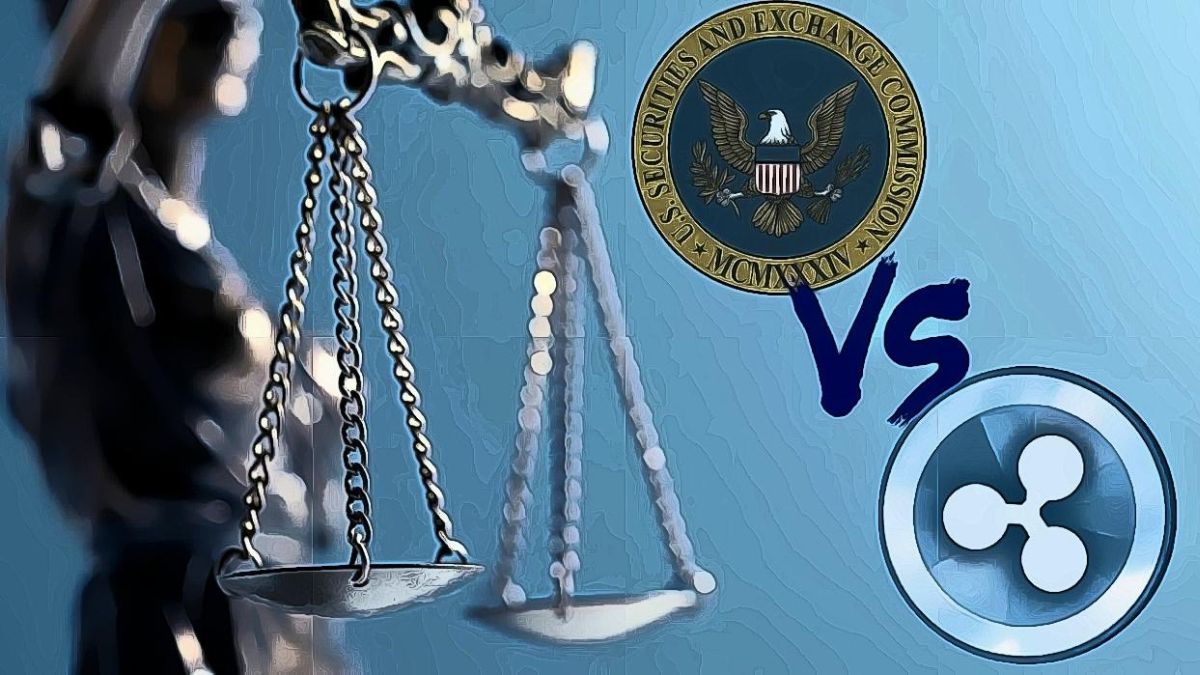Legal
Craig Wright sues Bitcoin developers

Craig Wright suffered a computer hack that cost him a £3.5 billion theft, and now he wants to sue Bitcoin’s developers to recover the stolen cryptocurrencies.
This was announced by the law firm Ontier LPP, which oversees Tulip Trading, of which Craig Wright is the owner.
The legal action actually also extends to the developers of BCH, BCH ABC and BSV.
It all starts with the theft which dates back to February 2020. The lawyers explain that Craig Wright’s personal computer was hacked, and bitcoin that were contained in two addresses and belonged to Tulip Trading Limited were stolen. The lawyers argue:
“These assets were, and continue to be, owned by TTL”.
And further:
“TTL is requesting that the developers enable TTL to regain access to and control of its Bitcoin on the grounds that they owe Bitcoin owners both tortious and fiduciary duties under English law as a result of the high level of power and control they hold over their respective blockchains”.
Craig Wright’s lawsuit against Bitcoin developers may be a lesson learned
Craig Wright had around 111,000 bitcoin stolen at the time, which are now worth £3.5 billion. The aim of the lawsuit is to somehow “force” the developers to return the BTC to their original address.
Craig Wright, a note explains, which also calls him the “inventor of Bitcoin”, does not believe the developers are at fault in what happened, but believes they can still resolve the issue.
“Our client always intended Bitcoin to operate within existing laws, notwithstanding the original ethos of independence he envisaged for the digital currency.
We assert there are identifiable legal obligations attributable to those who develop and control Bitcoin. As a victim of theft of some serious magnitude, Tulip Trading is seeking recovery of its access to and control of its digital assets from those in a position to remedy its loss. The fact that someone has stolen Tulip Trading’s digitally-held private Bitcoin keys does not prevent developers from deploying code to enable the rightful owner to regain control of its bitcoin. A ruling in Tulip Trading’s favour will have considerable implications for others who have lost access to their Bitcoin or had coins stolen”.
Basically, the case could be set to become a milestone in cryptocurrency theft cases.
The address linked to Mt. Gox
The case opens a window on another symbolic cryptocurrency story, which is the failure of Mt. Gox. In fact, one of the two addresses that were allegedly robbed and that lawyers say belong to Tulip Trading, allegedly contains 80,000 bitcoin from Mt. Gox. As early as June 2020, someone noticed this coincidence, including Riccardo Spagni of Monero, and it was said that Craig Wright had hacked Mt. Gox on the basis of a conversation in which Mark Karpeles spoke of a transaction (the one involving the 1Feex address) from Tulip Trading in which 80,000 bitcoin were stolen from the exchange, which went bankrupt in the following years.
Craig Wright had taken a position on the matter in a statement:
“I agreed to purchase the bitcoin in the 1Feex address in late February 2011 and it was transferred into that address on 1 March that year. The full amount of the Bitcoin, which is now owned by Tulip Trading Limited, remains in that address today”.
Not only that, Craig Wright also pointed out that, at least until June 2020, there was no investigation into that address and Mt. Gox’s bankruptcy, nor did Mt. Gox ever seek to recover those 80,000 bitcoin. Nor did the liquidators ever make any such claims. What’s more, he added, it had been known since at least 2018 that he owned that address. He concluded:
“If anyone, including the liquidators of Mt Gox, wishes to assert ownership over the bitcoin in the 1Feex address then they should come forward and the identity of the rightful owner to the bitcoin can be determined by the appropriate judicial authorities. Anyone with such a claim should contact my English lawyers, SCA ONTIER LLP”.
Legal
FTX Files Lawsuit Against Sam Bankman-Fried’s Parents in Effort to Recover Funds

The bankrupt cryptocurrency exchange FTX has filed a lawsuit against the parents of Sam Bankman-Fried, the platform’s founder and former CEO, in a desperate attempt to recover funds that are alleged to have been fraudulently transferred and misappropriated. This controversy has shaken the world of cryptocurrencies and has put Joseph Bankman and Barbara Fried in the spotlight, as they now face serious allegations of personal enrichment at the expense of FTX’s customers. Join us in this report as we explore the details of this legal case that has captured the attention of the public and the financial media.
Accusations of Personal Enrichment
A recent Bloomberg report has revealed strong accusations against Joseph Bankman and Barbara Fried, Sam Bankman-Fried’s parents. They are accused of leveraging their privileged access and influence within their son’s cryptocurrency exchange to benefit financially, at the expense of the platform’s customers. This allegedly improper behavior has raised serious concerns and generated controversy within the cryptocurrency community.
Details of the Lawsuit
The lawsuit filed in the United States Bankruptcy Court for the District of Delaware outlines multiple instances in which Bankman-Fried’s parents are alleged to have misappropriated funds belonging to FTX for personal purposes. Among the contested transactions are the purchase of flights and tickets for a Formula 1 Grand Prix in France, as well as millions of dollars in donations to a political action committee (PAC) aimed at supporting the Democrats during the 2020 U.S. electoral cycle.
Bankman’s Influence on FTX
The court filing emphasizes the significant influence that Joseph Bankman is said to have had in various entities related to FTX, including FTX Trading, Alameda, and Alameda Ltd. According to the document, this influence would have granted Bankman a de facto status as an officer, director, and/or manager in each of these companies, raising questions about his role in the operations of the cryptocurrency platform.
Response from the Accused
Lawyers representing Joseph Bankman and Barbara Fried have issued a joint statement in which they describe the lawsuit filed by FTX’s bankruptcy estate as a dangerous attempt at intimidation and a threat to the impending legal process. Furthermore, they have asserted that the accusations against them are “completely false” and they are prepared to vigorously defend their innocence.
In Conclusion
The lawsuit against Sam Bankman-Fried’s parents marks a milestone in FTX’s controversial history and has sparked a debate within the cryptocurrency community about accountability and transparency in the world of cryptocurrencies. As the case progresses through the courts, it will be interesting to closely follow its developments and the potential implications for the future of this platform and the cryptocurrency market as a whole. Stay informed through our regularly updated reports on this evolving topic.
Bitcoin News
Russian Ministry of Finance proposes to regulate cryptocurrencies

The Russian Ministry of Finance submitted to the national government a legislative proposal to regulate cryptocurrencies in the country.
The draft federal law “On Digital Currency” is “aimed at creating a legal market of digital currencies and establishing rules for their circulation and the circle of participants,” the institution reported in an entry on its website.
The legislative proposal also establishes requirements for digital asset exchange platforms and operators in general.
These requirements, which will relate to governance, cover reporting, information storage, internal control and auditing, as well as the risk management system and the amount of own funds.
For this purpose, a special registry of operators will be created and a regulatory body, to be determined by the government, will be in charge of authorizing companies that can carry out such activities. Foreign cryptocurrency platforms will be required to register in Russia in order to obtain a license.
The draft law will also require customers to identify themselves in advance in order to carry out transactions for the purchase and sale of digital currencies.
Deposits and withdrawals of cryptocurrency from the customer to the trader and vice versa will only be possible through banks using a bank account, the proposal says.
For their part, exchanges and banks will have to report any suspicious transactions directly to Rosfinmonitoring, Russia’s Federal Service for Financial Supervision.
In order to protect investors, exchange platforms will be obliged to report on the “high risks associated with the acquisition of digital currencies”.
Customers will also be required to undergo a test before trading cryptocurrencies. Their level on that test will determine the amount they can invest in crypto.
“If they pass the test, citizens can invest in digital currencies up to 600,000 rubles annually [about USD $7,800]. If they fail the test, the investment limit will be capped at 50,000 rubles [USD $600]. Investors and qualified legal entities will be able to conduct transactions without restrictions,” the official document states.
The regulations include other regulations, including requirements for platforms to separate their digital assets from those of clients.
Ministry of Finance will consider Central Bank proposal
The Ministry of Finance indicated that it will consider the Russian Central Bank’s cryptocurrency ban proposal, also the application of sanctions, as long as they do not contradict its own regulatory approach.
The official statement reads:
The proposals received by the Bank of Russia will be taken into account in further work on the draft law to the extent that they do not contradict the approaches of the Russian Ministry of Finance.
The legislative proposal also mentions cryptocurrency mining. According to the document, a legal definition will be created for Bitcoin and cryptocurrency mining, as well as the legal obligation to “inform the tax authorities” about their activities.
Legal
Candidate for the French presidency, Éric Zemmour presents proposals for the cryptocurrency sector

With two months to go before the first round of voting, France’s presidential candidate, Éric Zemmour of the Reconquête political party, presented four proposals that include fiscal reforms for the taxation of digital currencies and NFTs.
The candidate called the burgeoning cryptocurrency space a “sector of the future” and assured that his proposals were meant to boost the ecosystem at the local level.
The politician shared his vision via his Twitter account on Monday, following his visit to the facilities of Ledger, a French firm specializing in cryptocurrency.
“Today I visited Ledger, French leader in cryptoasset security. We must support the cryptocurrency ecosystem, a sector of the future, and here are my proposals:
(1/5)” he said on Twitter.
First, the candidate put forward a tax proposal for cryptocurrencies. He proposed acting on the taxation of cryptocurrencies to encourage their holders to reinvest their capital gains in the “real economy.”
Zemmour also mentioned the growing trend of non fungible tokens (NFTs), and raised a specific tax policy for this sector that focuses on taxing their sale according to their underlying asset; for example, as for the cases of tokenized paintings.
Create an ad hoc tax regime for the taxation of the disposal of NFTs (Non Fungible Token) according to their underlying asset by expressly excluding them from the capital gains regime for digital assets.
He also indicated that he intends to “put an end to the administrative hell for the professionals of the sector” that does not facilitate the distribution of cryptocurrencies by French platforms.
Finally, he expressed his interest in promoting the stablecoins market without waiting for the digital euro project led by the European Central Bank (ECB). In his opinion, the European private sector must take on this development “so as not to leave the monopoly of stablecoins to non-European entities”.
-
Opinion2 years ago
XRP: FOX Business Senior Correspondent Says SEC Is Losing Its Lawsuit Against Ripple
-
Tutorials3 years ago
How to Earn, Farm and Stake CAKE on PancakeSwap with Trust Wallet
-
Altcoins News3 years ago
Projects with ongoing migration from Ethereum to Cardano
-
NFT3 years ago
CardanoKidz: The first NFTs arrive at Cardano
-
Tutorials3 years ago
How to set up a Bitcoin node: beginner’s guide
-
NFT3 years ago
SpaceBudz: new astronaut NFTs on Cardano
-
DeFi News3 years ago
Uniswap vs PancakeSwap: Full analysis
-
DeFi News3 years ago
Liqwid Finance the first DeFi project on Cardano: everything you need to know























